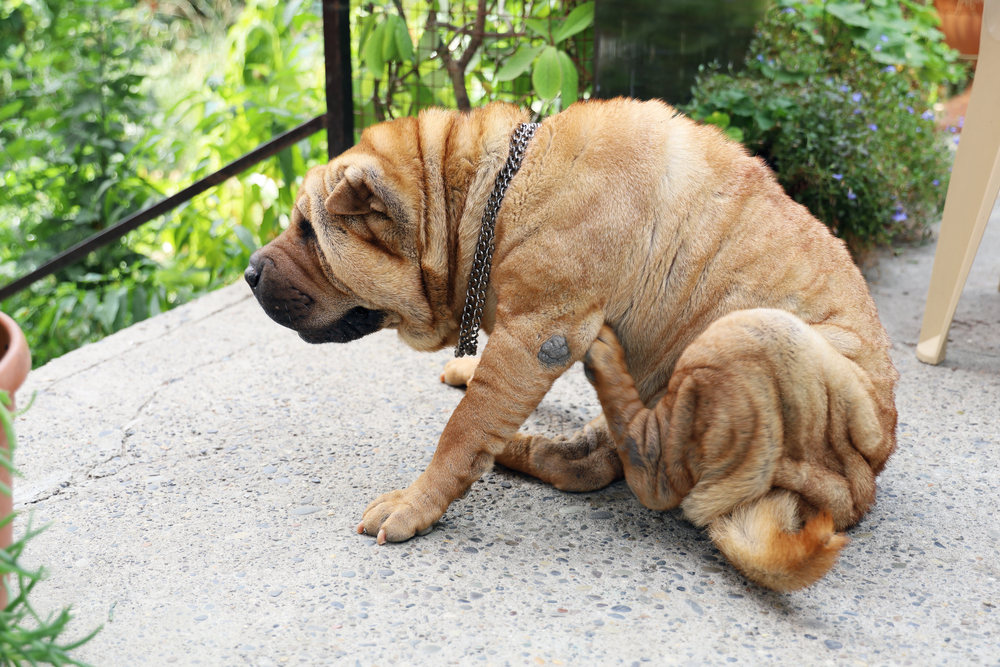Reasons for Labored Breathing in Dogs and Cats

Labored breathing in dogs and cats is triggered by multiple issues that impact a complex and vital system of the body–the respiratory system. It delivers oxygen throughout the body and removes carbon dioxide. This specialized system keeps your furry friend moving and cool, as it is essential for many aspects of health. So, when your pet is struggling to catch their breath or is breathing heavily, it is unsettling.
If your pet is having trouble breathing or has labored breathing, it’s important to get them diagnosed and treated. The team at Oakland Veterinary Referral Services provides some key reasons for this condition and what you can do to help your pet.
Labored Breathing in Dogs and Cats
One of the functions in life that we take for granted is breathing. Every living thing does it, and it is only when there is difficulty that we appreciate the exquisite function of the respiratory system. Dogs and cats can have trouble breathing too. Many problems manifest as breathing difficulties in pets, from being overweight to toxicity, or to a disease like heart disease.
There are a few common conditions that cause breathing difficulties.
- Tachypnea — This condition causes your pet to breathe rapidly for no apparent reason. Rapid breathing in dogs and cats occurs normally when your pet has been running or other forms of strenuous exercise. Panting in order to cool the body down is another reason for rapid breathing. But if neither of these are the case, rapid breathing can be a sign of serious conditions, such as infections, anemia, and possible blood clots.
- Dyspnea — Dyspnea is also referred to as labored breathing. Pets with this condition struggle to catch their breath or inhale and exhale normally. Along with difficulty breathing, your pet may cough, lower their head, flare their nostrils, and breathe with their mouth open. Their breathing may be noisy as they struggle to breathe in and out. Labored breathing in dogs and cats can be due to an underlying disease, such as lung disease or diseases related to the throat or mouth. Other causes are injury, trauma, and blockages from a foreign body.
- Excessive panting — Panting is a normal function that allows your pet to cool down their internal body temperature. There are times, though, when panting is abnormal. If your pet is panting excessively and shows other signs of abnormal breathing, they should visit your veterinarian. Excessive panting can be due to high blood pressure, a thyroid condition, fever, pain, and other illnesses or conditions.
Signs of Breathing Problems in Dogs and Cats
There are specific signs to look for when you suspect your pet has breathing issues. Respiratory distress is a veterinary emergency, so always call us when you suspect your pet isn’t breathing normally or isn’t getting enough oxygen.
- Rapid respiration of over 40 breaths per minute
- Hunching
- Open-mouthed breathing
- Coughing, especially at night
- Blue gums
- Hoarse vocalization
- Panting
- Anxiety
- Craning neck
- Sitting up to breathe
- Foaming from the mouth
Why Is My Pet Having Difficulty Breathing?
A problem with the airways, lungs, chest wall, or diaphragm can trigger breathing difficulties. There are several diseases that cause labored breathing in dogs and cats. These include:
- Asthma
- Infectious diseases, such as canine influenza
- Bronchitis
- Cancer
- Heart failure
- Metabolic issues
- Pneumonia
- Laryngeal paralysis
- Trauma
If Your Pet Is Having Trouble Breathing, Call Us!
If your fur friend is having problems breathing, consider it an urgent situation. The only way to know what’s happening with your best friend is through an examination and diagnostic testing. When in doubt, always call us at (248) 334‑6877 for a consultation or come in for an ER visit.


